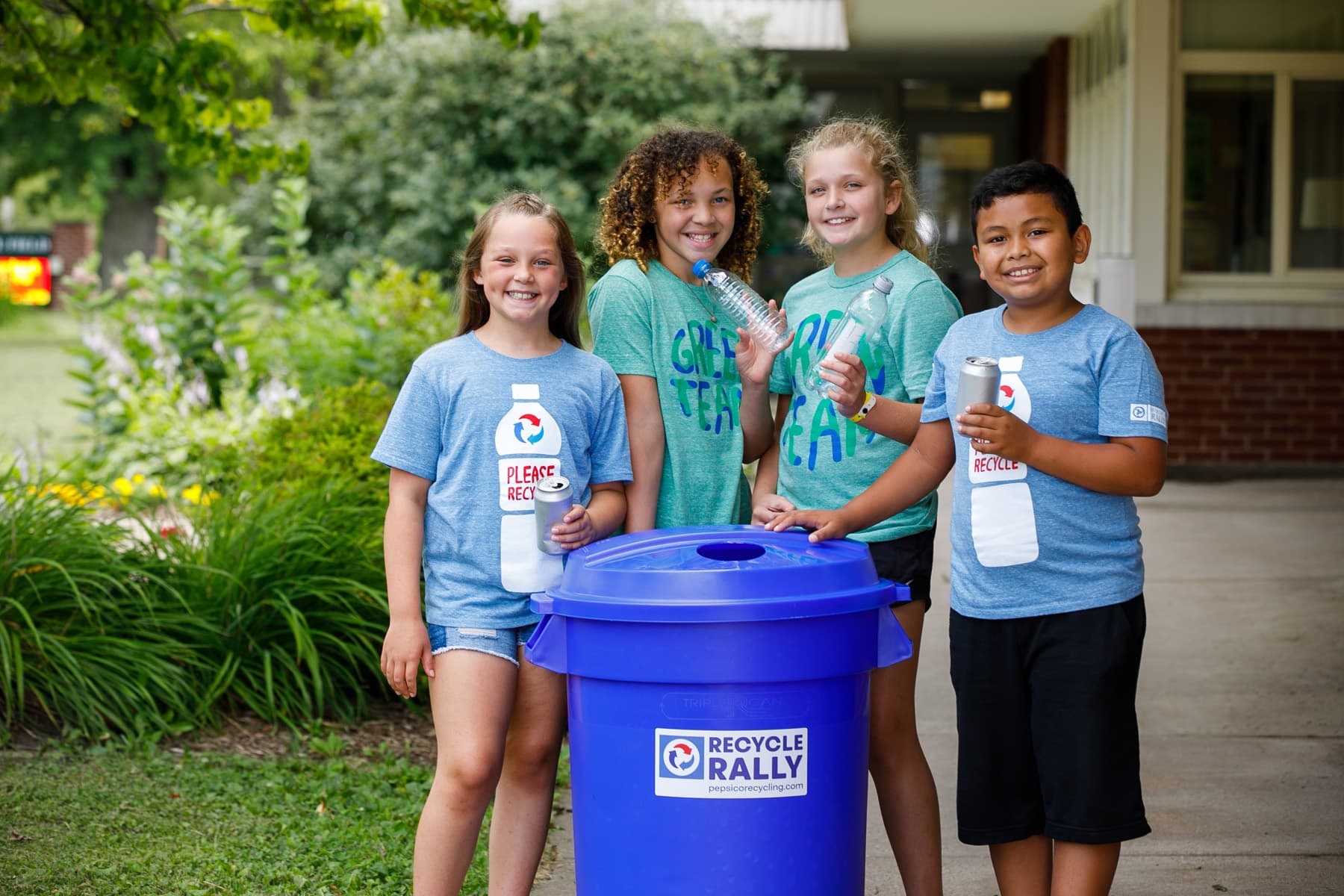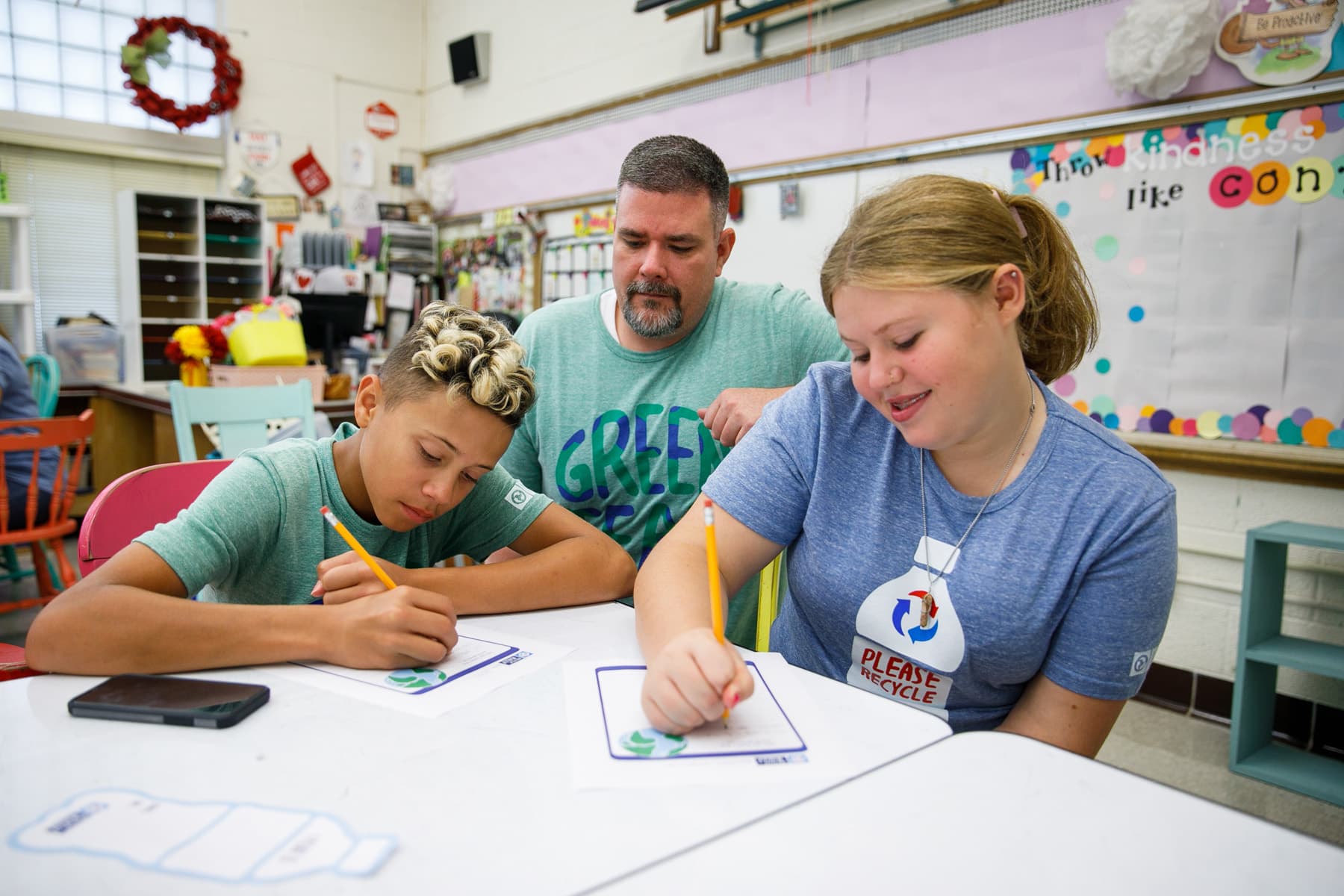Teach Kids to Write an Opinion Piece on Zero Waste Schools

All kids have opinions, and most of them are not afraid to share them! As you take steps to become a more sustainable school, one of the most effective ways to engage students is to ask what they think. Enter the power of opinion writing (aka persuasive writing or argumentative writing).
By asking kids to write an opinion piece on becoming a zero waste school, they will naturally learn about the importance of this topic. This is also a great writing activity for introducing cross-curricular teaching about zero waste topics. Here’s an easy, seven-step system for how to teach opinion writing on this topic. It might just help your school with their recycling and zero waste efforts, too!
1. Read mentor texts to better understand opinion writing
Opinion writing can often be tricky for students, not because they don’t have opinions but because it goes against what they’ve already learned about writing. They no longer have to avoid phrases like “I think” or “I believe.” They’re now encouraged! One of the best ways to get students in the right frame of mind is to read mentor texts on opinion writing. This can include picture books like the ones on this great list. It can also include articles you find in newspapers or online. For instance, here’s a piece about How Recycling Can Be the First Great Step Towards Becoming a Zero Waste School, and here’s another, How School Recycling Changed My Classroom and Community for the Better. Finding a piece on the subject students will be writing about will help them to make connections and start forming their own opinions.
2. Introduce the topic, and invite students to share
Once students have a good grasp of opinion writing from the mentor texts, go ahead and introduce the topic—zero waste schools. (If you already introduced the topic when you read the recommended pieces above, that’s fine.) Invite students to share their thoughts about zero waste schools. Here are some question prompts to get the discussion going:
- What do you think zero waste means?
- Would you want our classroom or school to be zero waste? Why or why not?
- Would you want your home to be zero waste? Why or why not?
- How would it be hard to be zero waste? And what would make it easier?
- Should we encourage others to be zero waste? Why or why not?
3. Research and learn
After you’ve let students share their initial opinions, it’s time to do more digging and learning about the topic. Depending on their age, you can either let them do this independently. You could also give them some sources to check out. Here are a few good ones:
- Recycling Discussion Topics, PepsiCo Recycling
- Be a Food Waste Warrior, World Wildlife Fund
- Zero Waste for Schools, Green Schools National Network
- Questions Schools Should Ask About Going Green, PepsiCo Recycling
- School Programs to Help You Recycle, WeAreTeachers
- 29 Ideas to Bring Recycling into the Classroom, WeAreTeachers
4. Hold a second round of sharing
If you have the time, try having another round of sharing now that you’ve researched the topic. Encourage students to widen and even change their opinions based on their new knowledge. You can use the same questions from above or ask new ones.
5. Use a graphic organizer to prepare for the essay

Before students sit down to write, have them prepare by using a graphic organizer specifically for opinion writing. You can use this free one here. Don’t let students skip this step! It’s an important part of the process that can really help get organized. This is not just for formulating their opinions, but it’s also to help them make sure they have reasons to back them up. It’s the oh-so-important “because” that they’ll need to write about. It’s easy to state an opinion, and filling out a graphic organizer will help students figure out their “because” to ultimately write a strong essay.
6. Time to write
There are, for sure, a lot of different strategies for teaching opinion writing. We like to break down all the thinking for each part of the writing piece. Try this free graphic organizer to help you share your expectations.
7. Celebrate the essays
After your students have written essays, take time to recognize their unique thoughts and ideas. You might even celebrate the essays by hanging them up on display or sharing some of them with your administrator or school board. They could even help you in your efforts to go zero waste. When students speak, especially on topics like these, it can be very empowering.
Good luck creating opinion essays about zero waste with your students. Often, small suggestions or ideas that surface from these essays can make a big impact. Yet, we don’t always see them when we’re in the depths of planning. So this can be a great opportunity to bring them out and recognize them in positive ways.
Learn More

Recycle Rally
Recycle Rally is a free K-12 program that provides rewards and tools to help enhance recycling at your school!
Explore now
Additional Resources
Our comprehensive library of resources was designed to inspire the next generation of green leaders.
Explore now
